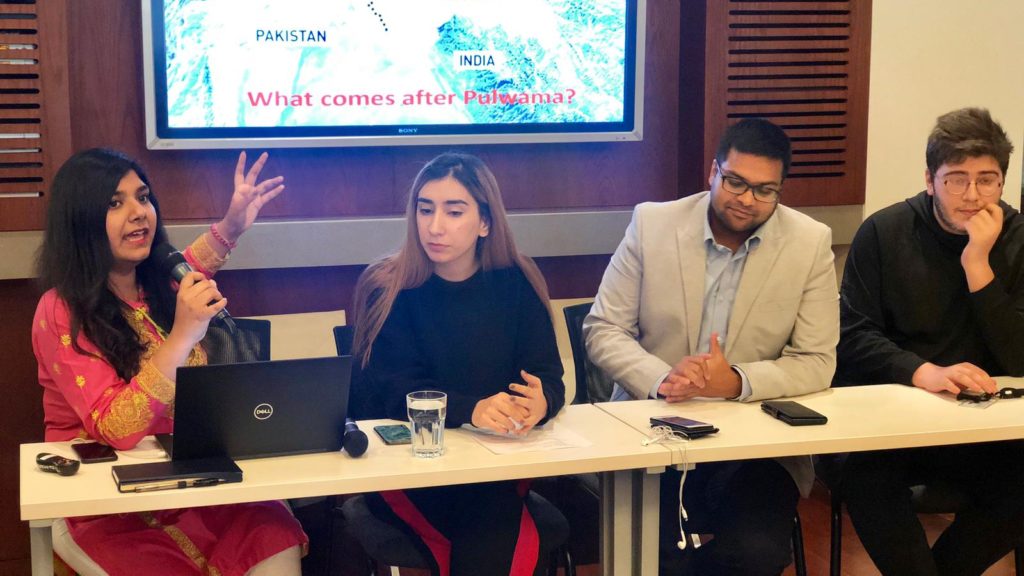The Pulwama Bombings: What’s Next?

The South Asian Society student club organized a panel discussion titled “The Pulwama Bombings: What’s Next?” on February 27, 2019, to address the recent violence in Kashmir that has escalated tensions between India and Pakistan.
The president of the South Asian Society, Zaubash Shakir, welcomed the audience and recapped the series of events triggered by the recent attack that killed 42 Indian paramilitary forces in India-controlled Kashmir, including India’s bombing retaliation and the downing of Indian fighter jets flying in Pakistan’s airspace.
Zaubash introduced the panel of speakers:GU-Q students Taha Kaleem and Shiza Abbasi, and assistant professor of government, Dr. Uday Chandra.
Shiza, a senior currently working on a thesis project on Kashmir, began by reviewing the history of the region, saying, “Violence is a horrendous form of disengagement, but to be understood, it requires critical context.”
She described the history of contestation that began even before post colonial partition, and the decades of economic, social and political grievances of the Muslim majority living in Indian-administered Kashmir. She explored the range of state responses to those grievances, from indifference to violent counterinsurgency strategies, all of which failed to resolve or address legitimate concerns.
Taha then presented his views, sharing memories of growing up in Kashmir, while bringing attention to the complexity of the conflict and the erasure of the viewpoints of Kashmiris themselves. “Media on both sides of the mountain portray Kashmir as a black and white struggle, where we either have to join one side or the other. But living in Kashmir is very different from the competing narratives. Our society is divided, and not everyone wants the same thing. The picture is not as clear as many think.”
Dr. Chandra, who specializes in South Asian studies, presented the events in the context of the upcoming general election in India in which the BJP party, led by Narendra Modi, is trying to maintain power. “For me the only thing to add is how things look from the Indian mainland, and there are severe implications for what’s going on along the border, for India’s domestic politics and for how India will administer their side of Kashmir.”
While noting that India’s air strikes produced more smoke than actual fire, he explained that the “saber rattling” on the border may be a precursor to the declaration of a national emergency on the grounds of “external aggression” that could potentially have major consequences.
The event concluded with a Q&A allowing students, faculty, and staff to ask questions about the causes, consequences, and path ahead.